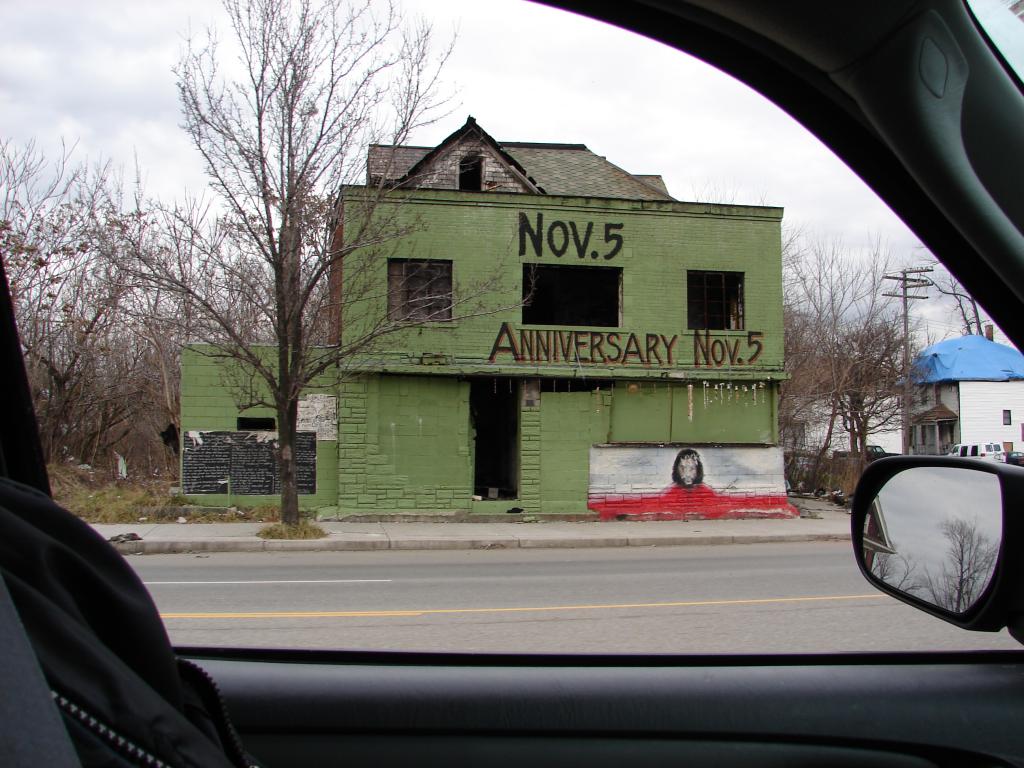From the New York Times, “A Hearing on Housing in Detroit Draws a Reluctant Crowd,” via The American Interest, via Instapundit.com:
Michigan in 1999 changed the way its local governments deal with people who fail to pay their property taxes, replacing a system of tax liens with foreclosure. Yet the number of foreclosures did not reach what advocates here view as a crisis level until years later, when the national recession hastened the city’s problems with blighted properties and population decline. By last year, at least 70,000 foreclosures had taken place here since 2009, not for unpaid mortgages but for failure to pay property taxes.
Of the 62,000 city properties subject to foreclosure this year, more than half are believed to be occupied; nearly 13,000 are probably vacant lots. Some portion of the properties facing foreclosure were also eligible for it a year ago or more, but officials had delayed pursuing them in part because the numbers had grown too large for county workers to handle so many proceedings.
. . .
Mayor Mike Duggan, who has pledged to begin increasing the city’s population and end its long decline, said his administration was working with the county treasurer’s office to help all qualified residents who own and live in homes up for foreclosure this year to get on payment plans that could allow them to stay.
Now, usually I like what Walter Russell Mead and staff have to say, but here they lay the blame at the feet of the “Great Society model of urban governance.” And really, well, to begin with, it seems perfectly ordinary to me for the State to take your home if you haven’t paid property taxes. I had thought this was the norm everywhere, and in a place like Detroit, placing liens on homes make no sense — market values of homes are so low that property taxes, which may be perfectly ordinary in an absolute sense, are such a high percent of the home’s value that you’d quickly accumulate more in unpaid taxes than the house is worth, if all you did was wait for the sale to collect.
(On realtor.com right now: 14451 Stahelin Ave, asking price $24,900, property taxes of $3,511. 15744 Ferguson St, asking price $30,000, property taxes of $2,646.)
But what’s broken is the entire property tax model. If I spend my money on a new BMW every year, I pay sales tax once. If I spend my money on an addition to my house, I pay for that, every year as long as I own the house. And property taxes may or may not correlate to income, either, depending on personal choices, and elements outside your control like how much your neighborhood appreciates compared to the rest of the city or county.
Once upon a time, property taxes did make sense — back when most Americans farmed, and your income, compared to your neighbors, was directly correlated to how much land you owned, and at the same time, there was no reasonable alternative way of collecting taxes. But that’s not the world we live in any longer.
You know who doesn’t have property taxes? Germany. For all that we talk about how high-tax European countries are, this major part of the tax bill for many Americans (including us — and property taxes have ballooned dramatically in the decade that we’ve owned the house we live in now) just isn’t an issue. Or rather, looking this up, the rates appear to be, at any rate, much, much lower – 0.35% of the value of the property, though with an assessment process that’s a bit of a mystery and, according to a local resident via Toytown Germany, amounts to maybe EUR 100 – 300 per year for an average property.












